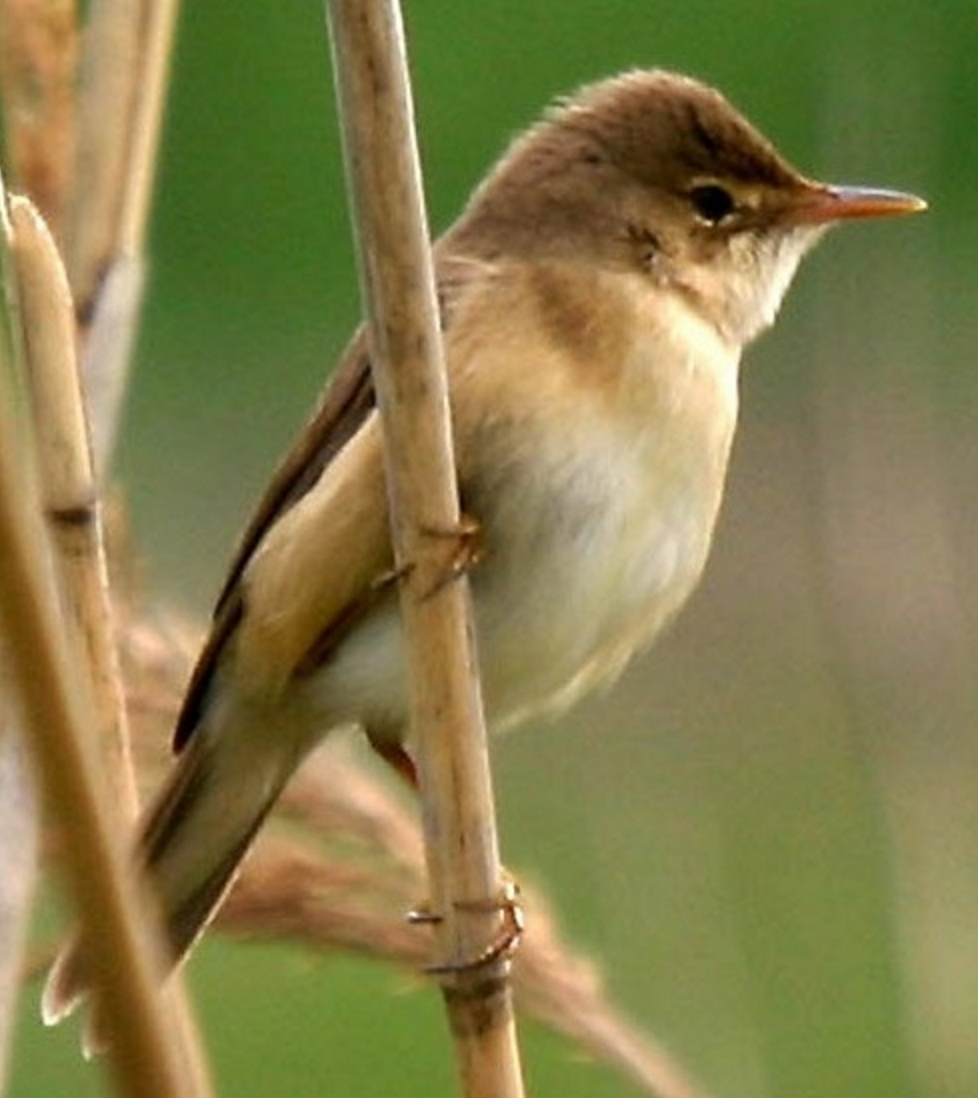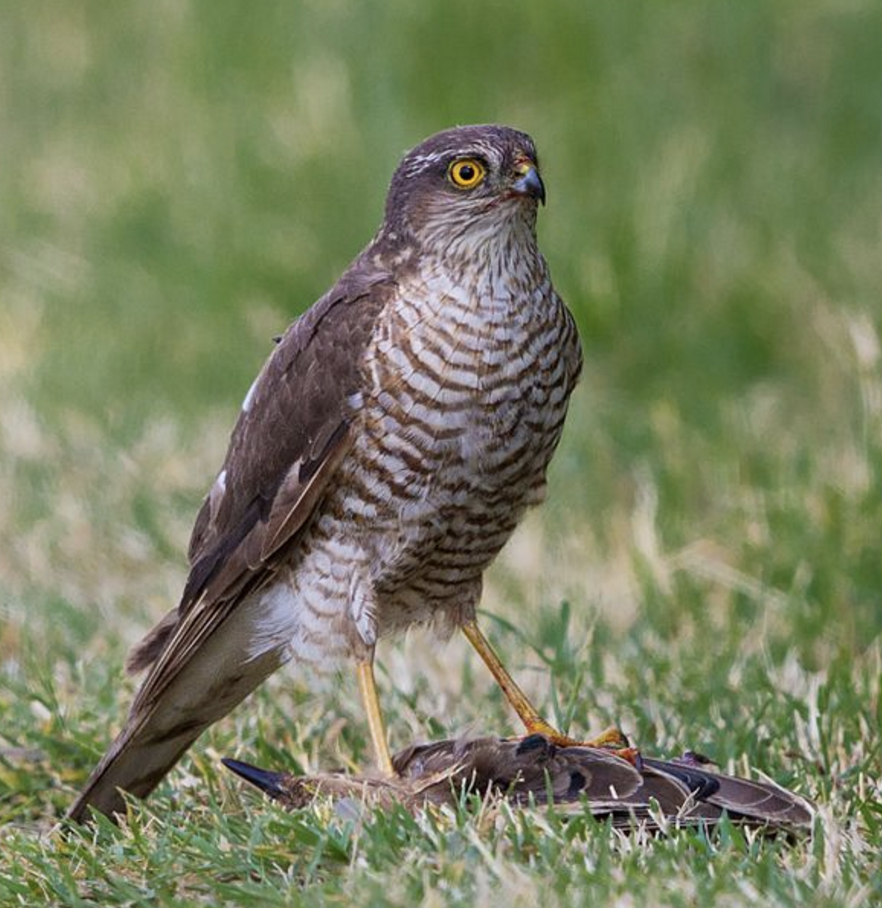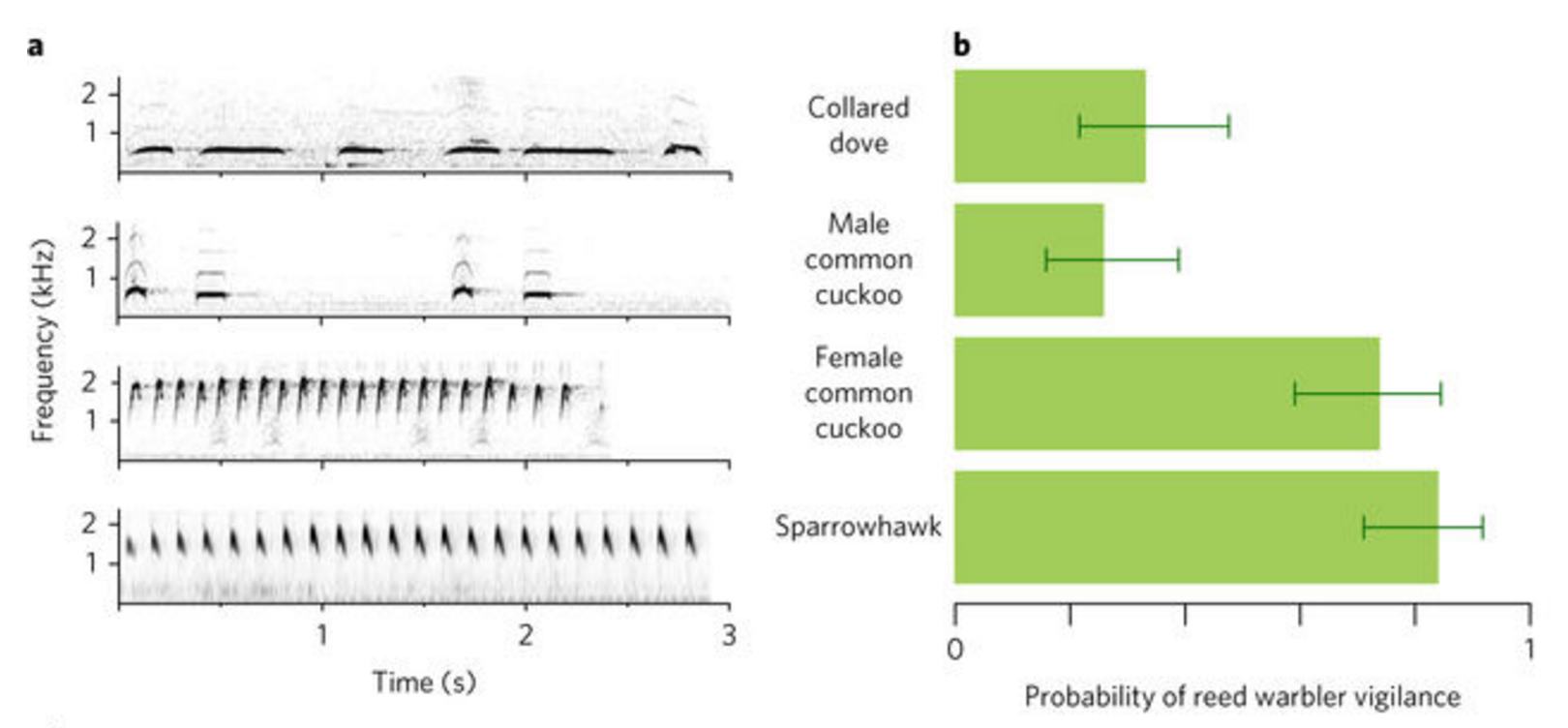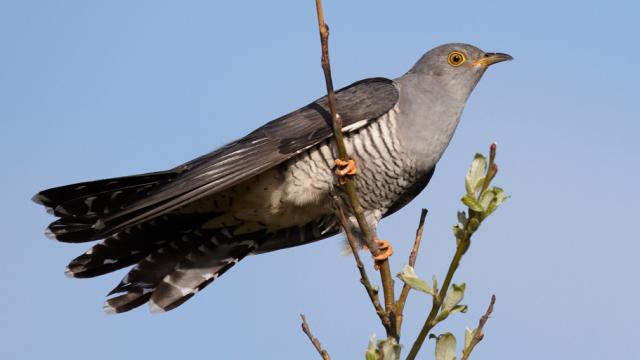In one of the more notorious dick moves of the animal kingdom, parasitic cuckoo birds lay their eggs in the nests of other birds, forcing them to raise the cuckoo chicks as if they were their own. New research shows that female cuckoos conduct this bait-and-switch while scaring the crap out of their unsuspecting hosts — which they do by mimicking the call of a predatory bird.
The common cuckoo. (Image: Wikimedia)
Cuckoo birds partake in brood parasitism, which is when an animal tricks a member of another species into raising its young. In many of these cases, the unsuspecting foster parents are forced to expend more time and energy than usual, and often at the expense of their own offspring. Cuckoos have developed a bunch of tricks to assist in this deception, including the ability to match the colour of their eggs to those of the host, along with exceptional speed and efficiency when laying eggs in the host’s nest. (As an aside, some birds are evolving countermeasures to fight back, but that’s another story.)

New research published in Nature Ecology and Evolution shows that cuckoos have another trick up their parasitic sleeve, one previously unknown to scientists. Work by Cambridge University ornithologists Jennifer York and Nicholas Davies shows that female cuckoos, soon after laying an egg in a reed warbler’s nest, produce a call that mimics the sparrowhawk — a predatory bird that’s known to feast on reed warblers. This call keeps the frightened reed warbler mother away for a bit longer, affording the cuckoo more time in the host’s nest, and a greater chance of succeeding at the deception. Eventually, the reed warbler returns home, completely unaware that some opportunistic jerk just laid an egg in her nest.
Interestingly, York and Davies’s work solves a longstanding mystery about cuckoos. The male cuckoo’s call, for which it is named, is quite different than the call produced by the female, a laugh-like kwik-kwik-kwik. What’s more, cuckoo females make that call when they’re laying eggs in a host’s nest. This seemed weird to scientists, who couldn’t understand why the female cuckoo risked bringing attention to herself at a time when ninja-like stealth would be preferential. York and Davies theorised the the female cuckoo’s call was an effort to mimic the sparrowhawk’s call, which goes kiii-kiii-kiii.

To prove this, the researchers conducted an experiment in which recorded calls of male and female cuckoos, sparrowhawks and collared doves (a random non-threatening bird that acted as the control) were played to reed warblers in the wild. When the reed warblers listened to the calls made by male cuckoos and collared doves, they didn’t react. But when the female cuckoo’s kwik-kwik-kwik came on, they freaked out just as badly and almost as often as when they heard the sparrowhawk’s call. This put them into a mode of self-preservational vigilance, forcing them to stay away from their nest until they felt the coast was clear.
“This hawk-like chuckle call increases the success of parasitism by diverting host parents’ attention away from the clutch and towards their own safety,” wrote the authors in the study. “As a result, the female cuckoo might have ‘the last laugh’ in this particular battle between host defence and parasite trickery.”

Red warblers typically went into “vigilance” mode when hearing calls from both sparrowhawks and female cuckoos. (Image: York & Davies, 2017).
York and Davis, in an effort to ensure they were on the right track, performed an identical experiment on chickadees. These birds are not targeted by cuckoos, but they are targeted as meals by sparrowhawks. Revealingly, the chickadees responded to the female cuckoo’s call as if it were produced by a sparrowhawk, adding further credence to the suggestion that the kwik-kwik-kwik call is an effort to mimic a predatory bird.
These results show that the female cuckoo improves her chances of success by forcing the female reed warbler into an uncomfortable decision: A choice to save herself or leave the nest unattended. Given that a dead bird cannot return to her brooding activities, the decision to stay away is often the best course of action — much to the benefit of cuckoos. Fascinatingly, the study also shows that cuckoos have evolved sex-specific calls that contribute to their parasitic lifestyle.
